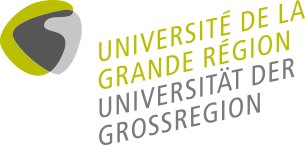The university in higher education in Luxembourg
The University of Luxembourg, the only university in Luxembourg, was created on 12 August 2003 in order to pursue three main activities: education, research and striving for the highest international level, in accordance with its mission statement and strategic plan.
Major importance is attached to research, which concentrates on particularly promising areas such as finance, information system security, life sciences, European business law, education and training in a multilingual and multicultural context.
The research teams are highly international in nature and are grouped into three faculties
- Faculty of Law, Economics and Finance
- Faculty of Sciences, Technology and Communication
- Faculty of Literature, Humanities, Arts and Education Sciences
Within the faculties research is organised into interdisciplinary research units.
In addition, two interdisciplinary centres have a more specific role to play in the area of IT (Interdisciplinary Centre for Security, Reliability and Trust) and biomedicine (Luxembourg Centre for Systems Biomedicine).
The diplomas and the structures of the university courses
In practice students at the University of Luxembourg can choose between 11 Bachelor’s programmes (both academic and vocational), 22 Master’s programmes (academic or vocational), plus six vocational training courses with a more specific purpose. The University of Luxembourg also welcomes Doctoral students.
The Bachelor’s, Master’s and Doctorate courses are run in accordance with the system of the Bologna process. All holders of a Bachelor’s degree can apply for a second level course, and all holders of the latter can submit their application for a doctorate.
Bachelor
The Bachelor’s degree is awarded to students who have passed 180 ECTS, (except for the Bachelor’s in Education Sciences, 240 ECTS) and completed one obligatory mobility semester in a foreign university. Normally one semester is equivalent to 30 ECTS.
Master
The Master’s degree is awarded on the basis of 120 ECTS.
Doctorate
The Doctor’s degree is awarded on completion of three years and after defending the thesis.
The thesis may be managed either autonomously by the University of Luxembourg, or under joint supervision with a co-supervisor from another research institution who is also authorized to supervise research.
The University is able to award doctorates in the following areas:
- Biology
- Chemistry
- Law
- Management
- History
- IT
- Humanities
- Mathematics
- Geography
- Philosophy
- Physics
- Psychology
- Engineering Sciences
- Economic Sciences
- Education Sciences
- Financial Sciences
- Social Sciences
- Political Sciences
- Language Sciences
Marking scale
The mark for each course is established according to the following scale from 0 to 20 points. A module has been passed if the student has undergone all the intended forms of evaluation and has obtained an overall weighted mark above or equal to 10 out of 20.
The diploma is issued after all the ECTS credits awarded to the programme have been passed. The diploma is issued with one of the following comments:
|
Numerical scale |
Qualitative Scale |
|---|---|
|
weighted average of marks from all modules: 10 to ‹ 12 |
Acceptable |
|
weighted average: 12 to ‹ 14 |
Satisfactory |
|
weighted average: 14 to ‹ 16 |
Good |
|
weighted average: 16 to ‹ 18 |
Very Good |
|
18 and above |
Excellent |
Access to higher education
Access to Bachelor’s courses is conditional on the possession of a certificate of completion of secondary studies or technical secondary studies, or another diploma which is recognised as equivalent to these. Some programmes operate a system of numerus clausus, others are subject to an acceptance procedure, either by examination or by the application being evaluated by the director of studies.


